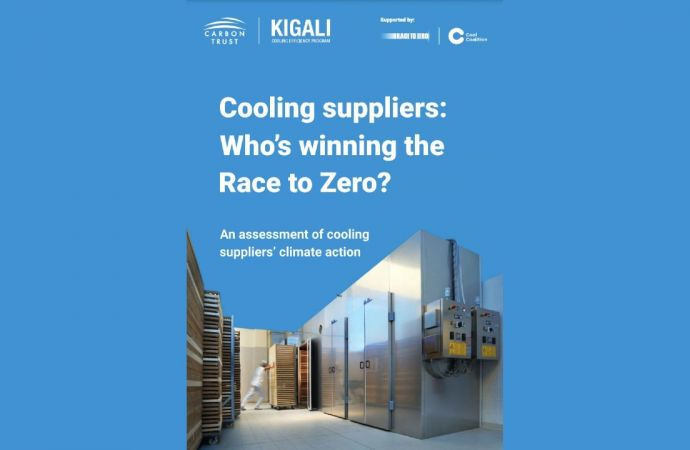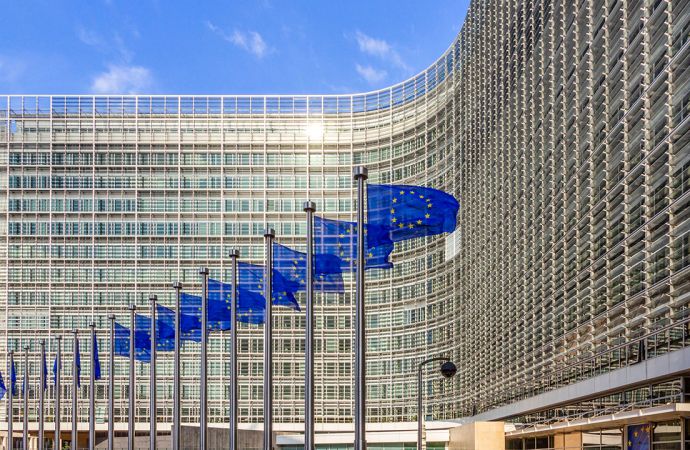The 7th European Heat Pump Forum, organised by the European Heat Pump Association (EHPA), this year took place in Berlin on 20 May. Preliminary statistics from 2013 presented at the event show a continuous growth in heat pump sales, by and large concentrated in 10 European markets. Several Member State representatives shared information on national energy policies and incentive schemes that support the growth of heat pumps, such as the UK RHI and the Italian D1 tariff.

The preliminary statistics on the use of heat pumps in Europe as presented by Thomas Nowak, EHPA’s Secretary General, show that at least 6.8 million heat pumps have been installed between 2005-2013 in 21 European markets. Nowak highlighted that the growth of the heat pump market is robust, while the impact of the policy measures such as the energy label is yet to be seen.
30% increase in sanitary hot water heat pumps in 2013; lack of data on large-scale units
France leads in terms of market share, with more than 153,000 heat pump units sold by 2013 and the highest share of sanitary hot water heat pumps in Europe. Almost 90% of all heat pumps are installed ten key countries (France, Italy, Sweden, Germany, Norway, Finland, Estonia, Denmark, Switzerland and Austria), while the potential in the rest of the Europe remains largely untapped.
Nowak identified the following key heat pump trends:
UK incentive scheme targets industry and domestic users
In the UK, heat pumps form a vital part of country’s national strategy, as pointed out by Jon Saltmarsh from the UK’s Department of Energy & Climate Change (DECC). With the aim of achieving the 80% CO2 emissions reduction target by 2050, reducing dependence on fossil fuel imports, and reaching binding energy efficiency targets, the UK government has implemented the world’s first long-term financial support programme for renewable heat, which was launched for the non-domestic sector in November 2011 and for domestic users in April 2014. The Renewable Heat Incentive (RHI) is designed to encourage heat pump installations, whilst the Microgeneration Certification Scheme is helping to improve performance of heat pump installations.
At the same time, the UK’s DECC is working to improve the performance of heat pumps through a number of projects, for example:
Italy to introduce reduced electricity tariff for heat pumps in July 2014
A representative of the Italian Heat Pump Association, Bruno Bello, gave an insight on the renewable heat pump incentives in Italy. The progressive structure of electricity tariffs is currently the main obstacle in the uptake of heat pumps in Italy, according to Bello. In order to solve this issue, a reduced electricity tariff, also known as the D1 tariff, has been announced, and will be launched in July 2014. It will be an experimental rate until December 2015. The application of the linear D1 tariff is set to reduce the operating costs of heat pumps from 32 to 21ct€ / kWhel and will be crucial in boosting the heat pump market in Italy.
In addition, Bello provided an overview of existing heat pump incentives:
About EHPA
The European Heat Pump Association represents the majority of the European heat pump industry. Its members comprise of heat pump and component manufacturers, research institutes, universities, testing labs and energy agencies. Its key goal is to actively promote recognition of heat pumps as a core technology and its integration into European legislation.
30% increase in sanitary hot water heat pumps in 2013; lack of data on large-scale units
France leads in terms of market share, with more than 153,000 heat pump units sold by 2013 and the highest share of sanitary hot water heat pumps in Europe. Almost 90% of all heat pumps are installed ten key countries (France, Italy, Sweden, Germany, Norway, Finland, Estonia, Denmark, Switzerland and Austria), while the potential in the rest of the Europe remains largely untapped.
Nowak identified the following key heat pump trends:
- Air-source heat pumps dominate the current market, whilst the deployment of ground-source heat pumps remains stable
- Sanitary hot water heat pumps show a strong growth, posting an increase of approximately 30% in 2013, and reaching 82,258 units
- There is a lack of data on the use of large scale heat pumps with capacities of over 20 kW
UK incentive scheme targets industry and domestic users
In the UK, heat pumps form a vital part of country’s national strategy, as pointed out by Jon Saltmarsh from the UK’s Department of Energy & Climate Change (DECC). With the aim of achieving the 80% CO2 emissions reduction target by 2050, reducing dependence on fossil fuel imports, and reaching binding energy efficiency targets, the UK government has implemented the world’s first long-term financial support programme for renewable heat, which was launched for the non-domestic sector in November 2011 and for domestic users in April 2014. The Renewable Heat Incentive (RHI) is designed to encourage heat pump installations, whilst the Microgeneration Certification Scheme is helping to improve performance of heat pump installations.
At the same time, the UK’s DECC is working to improve the performance of heat pumps through a number of projects, for example:
- RHPP heat pump monitoring programme that involves monitoring of 700 heat pumps
- Large ground and water source heat pump monitoring trial that involves monitoring of 25 larger heat pumps (30kW – 900kW) with results expected in 2015
Italy to introduce reduced electricity tariff for heat pumps in July 2014
A representative of the Italian Heat Pump Association, Bruno Bello, gave an insight on the renewable heat pump incentives in Italy. The progressive structure of electricity tariffs is currently the main obstacle in the uptake of heat pumps in Italy, according to Bello. In order to solve this issue, a reduced electricity tariff, also known as the D1 tariff, has been announced, and will be launched in July 2014. It will be an experimental rate until December 2015. The application of the linear D1 tariff is set to reduce the operating costs of heat pumps from 32 to 21ct€ / kWhel and will be crucial in boosting the heat pump market in Italy.
In addition, Bello provided an overview of existing heat pump incentives:
- 65% tax deduction for energy efficiency measures in existing buildings, which will be gradually decreased to 36% as of 2015;
- 50% tax reduction for building renovations, which will also be reduced to 36% from 2015;
- “Conto Termico” - incentive mechanism for renewable heating systems and energy efficiency measures, which has been in force since 2013, however, as a result of excessive bureaucracy and too stringent requirements for heat pumps, this scheme has been struggling to take off;
- Energy Efficiency Titles (EET) supporting energy efficiency and delivering emissions reduction in all energy end uses.
About EHPA
The European Heat Pump Association represents the majority of the European heat pump industry. Its members comprise of heat pump and component manufacturers, research institutes, universities, testing labs and energy agencies. Its key goal is to actively promote recognition of heat pumps as a core technology and its integration into European legislation.
MORE INFORMATION
Related stories



